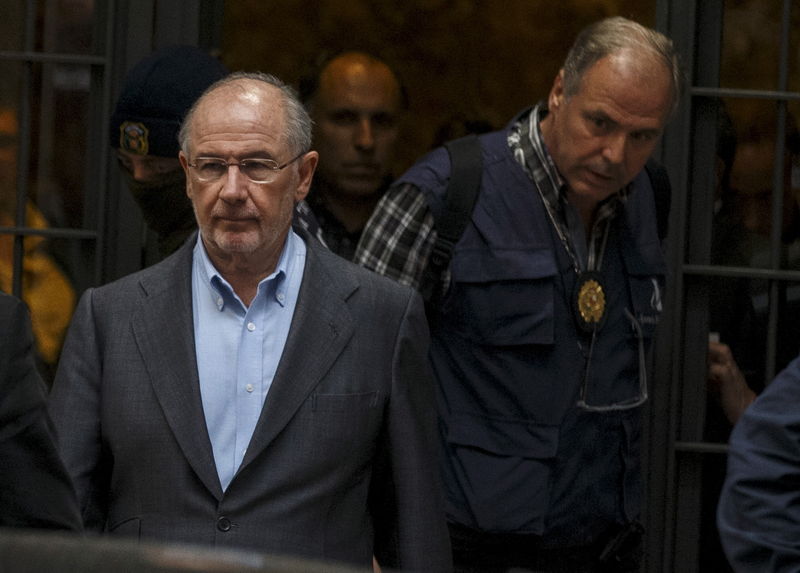By Emma Pinedo and Elisabeth O'Leary
MADRID (Reuters) - The home and office of former International Monetary Fund chief Rodrigo Rato were searched on Thursday as part of a tax and money laundering investigation into his personal wealth, Spanish judicial officials said.
Earlier, cameras showed Rato, a former Spanish economy minister, wearing a suit without a tie and being escorted from his home by police and tax officials amid heavy media presence.
He was later released after cooperating with authorities who seized documents relevant to the investigation, a judicial source said.
Rato was quoted by news agency EFE as saying he had "confidence in Spain's judicial system" and had been helpful to officials who carried out the search.
Judicial officials will now decide on the basis of those documents whether suspicions of money laundering, fraud and asset stripping have any legal basis, the judicial source said. They will then decide whether or not to name a magistrate to open formal proceedings against him.
Rato's lawyers, Oliva-Ayala, confirmed they represent him but could not immediately comment, while several calls and an email seeking comment from someone who has acted on his behalf in the past were not returned.
Spain's state prosecutor had requested a search of Rato's home as part of an investigation focussed on the former IMF managing director as well as "other people", according to a brief court statement in which further details were not provided.
Rato is a former Spanish deputy prime minister who was long a leading light of Prime Minister Mariano Rajoy's centre-right Popular Party (PP) before being implicated in two other judicial cases.
Magistrates are investigating the alleged widespread misuse of company credit cards for personal expenses during Rato's tenure as chairman of the bailed-out Bankia (MC:BKIA).
Rato is also one of several former managers under investigation for fraud as courts separately decide whether Bankia's 2011 stock market flotation was flawed. He denies wrongdoing in both cases.
Spain holds regional and local elections next month and a general election towards the end of the year in which the PP is expected to suffer heavy losses because of the implication of big party names in graft investigations in recent years.
Coming at a time in which unemployment affects almost one in four and most ordinary Spaniards are poorer than before an economic downturn six years ago, graft cases cause particular public outrage.

Opinion polls consistently show corruption is among Spanish voters' top concerns, and discontent with the political class has fostered the rise of two new parties, Podemos and Ciudadanos, which are predicted to win significant voter support this year.